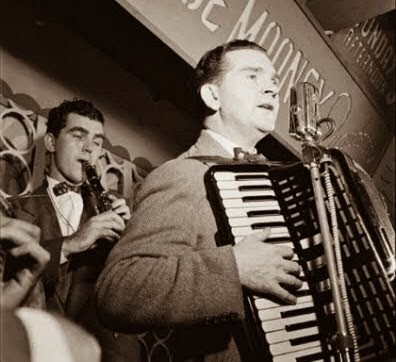Have I told you lately that contention makes me tired? Just when I think it’s possible to pause and enjoy a moment of relative serenity, someone lobs a verbal hand grenade that begs to be addressed. I’ve responded to such provocations before, except that I found myself taking positions espoused by those whom I’d cross the street to avoid. I recoil, aghast that I have to share the same soiled intellectual bathwater with them. Yet the people with whom I should be allied likewise fill me with alarm. Who am I, anyhow?
Sometimes I catch a glimpse of my Inner Reactionary in my mind’s eye, sitting and whittling on the rude porch of his piney-plank cabin, the tattered flag of a much-lamented Lost Cause fluttering in the Magnolia-scented breeze. For a moment he smiles and is oddly congenial—and then I want to hurl my copy of Howard Zinn’s A People’s History of the United States at him. This creature isn’t me—yet he emerges and grins gapingly at the worst possible times. I can sense him taking the steering wheel when I have A Point to Argue.
I have so argued, much to my discredit, and mail has come in. Kind readers suppose a gentle word of correction will set me on the right path. Nope. Genetic therapy might help, but the fulminating yokel is encoded somewhere in my strand of DNA. He is as much a part of my family tree as the stump.
Lately, when hot-button controversies rise from the swamp, I have taken to running interference. I affect nonchalance. My now-standard response, calculated to thwart my lurking sorehead, is “It doesn’t matter how I feel.” (I have even worked the phrase into a song, destined to be a pop single once I can clear a path to my guitars.) This is also what is known as a “cop out.”
Well, my policeman left the building once again. Still smarting from the long back-and-forth of the D-word controversy of a few years ago (please don’t send me any more letters about that one), I happened today to read a story published on theGrio.com on April 30, International Jazz Day: “Does jazz need a rebrand? Why the genre’s greatest icons resented the word ‘jazz.’” The author, Matthew Allen, goes on to cite an impressive list of musicians (Miles Davis, John Coltrane, Nina Simone, Max Roach, T.S. Monk, Ahmad Jamal, and Lee Morgan) who rejected the term outright.
“For starters, they say it’s racist. Many of these luminaries have stated that the term ‘jazz’ is derived from white gatekeepers, critics, and pundits who resented this new Black American music that was thought-provoking and inspirational in the early 20th century.”
Allen quotes T.S. Monk on the origins of the word—and why it’s offensive:
“Jazz comes from the French word jas, which means whore. It’s about whorehouses; they played in the jas houses,” Monk said. “It was Americanized and called jazz. Basically what they were saying is, this is whorehouse music. And it was insulting because one of the most intellectual endeavors in the history of mankind is jazz. So given that this is a tremendous intellectual endeavor and given the fact that it’s taken a very long time for White America to recognize Black intellectual acumen, that’s the basis of this rejection of the word jazz.”
Trumpeter Lee Morgan said, “I don’t even like the word ‘jazz,’ really. I think it’s a bad word,” Morgan is heard saying in his documentary, I Called Him Morgan. “It’s not a word that we made up. Just like we were told that we are negroes.”
Pianist Ahmad Jamal, during a 1973 interview with Down Beat, said, “I think it’s up to the musician to rewrite some of the history books on our music, and I think the elimination of the word jazz would be quite proper.”
It doesn’t matter how I feel. Really. Words always get us into trouble and lead to needless strife and conflict. (At this point, though, I am greatly relieved that I called my paper The Syncopated Times—since I had to call it something.) But if the J-word is destined to fall into the same disfavor as the D-word, so be it. I can’t sit here on the shore like King Canute and forbid the tide to come in. (My Inner Reactionary may differ, but it doesn’t matter how he feels, either.)
One might harbor nostalgia for a time when we quite innocently said all sorts of things that made people upset and hurt their feelings, but I cannot. It’s less fraught to just try to get along and treat people as they’d like to be treated, with the assurance that we’re acting in good faith (however clumsy).

When I think of old music I love, genre is a blurry issue at best. Hot bands might have accordions and Hawaiian guitars; Eddie Lang might pluck waltzes or Rachmaninoff; Fats Waller played blues on the pipe organ. Popular music even in the 1920s wasn’t subject to the rigid lines of genre demarcation that were imposed later.
It’s a relief to be free of genre-purity snobbery. I find I gravitate to music based on the artist or composer. Red Nichols will never stop being an innovative genius, whatever you call his music. Brahms is uniquely magnificent whether you dub him Classical or Romantic. I need Willard Robison in my life, whether he be Pop or Country. Ultimately, it’s okay to like whatever you like and to call it whatever you like—within the bounds of kind consideration.
I’m not about to let terminology interfere with a transcendent musical experience. It’s high time to shut up and listen.
All right, Officer, you may come in now.
Andy Senior is the Publisher of The Syncopated Times and on occasion he still gets out a Radiola! podcast for our listening pleasure.






















